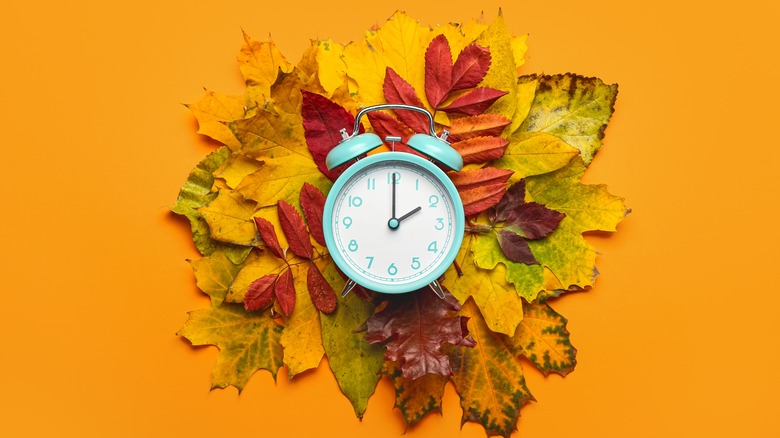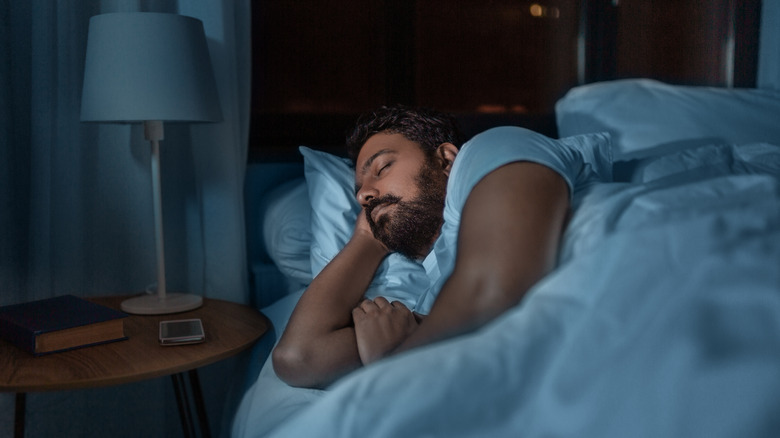Why The 'Fall Back' Time Change Can Be Good For Your Health
The thought of adjusting to daylight saving time changes can be anxiety-provoking to say the least, but in the fall we might actually be operating on a schedule that's better for our health. Not only do we "fall back" and gain an extra hour of sleep, but some experts argue that this time change actually gives us an opportunity to improve our sleep, according to U.S. News & World Report.
Time changes disrupt our sleep cycles, which are a certain kind of circadian rhythm (via Sleep Foundation). Circadian rhythms are our internal clocks that optimize many of our bodily processes, helping our bodies know when to go to sleep, wake up, digest a meal, and spend energy. These rhythms are influenced by sunlight, which gives the brain cues to send out signals to the body.
Similar to how flowers know how to open at the proper time of day, being exposed to sunlight can signal that it's time for us to wake up. And just like how flowers know to close when the sun goes down, our brains also know when it's time to power down.
When everything is working smoothly, our bodies release a hormone called melatonin that makes us sleepy at night. But when there's a disruption to this cycle, like a time change or being exposed to the blue light of a screen after the sun has gone down, we might feel sleepy during the day or have trouble falling asleep at night.
Lighter mornings and darker evenings help our internal clocks
When daylight saving time ends in November, we get more sunlight earlier in the mornings and less light earlier in the evenings (via U.S. News & World Report). While the thought of it being dark by late afternoon can feel distressing, this is actually more in line with our circadian rhythms, according to Dr. Annise Wilson, an assistant professor of medicine at Baylor College of Medicine. This means that we get an opportunity to improve our internal clocks and get better sleep.
Not only could we get better sleep, our health could improve, too. Getting the right amount of quality sleep can boost our mental health, heart health, and brain health. The National Sleep Foundation recommends that adults between the ages of 18 and 64 get 7-9 hours of sleep each night.
While the fall time change is easier on our internal clocks than the "spring forward" time change, there are still some things you can do to make it easier for yourself, according to U.S. News & World Report. While it may be tempting to take a nap while your body adjusts, don't nap for more than 20 minutes and try to only nap in the early afternoon, if possible. Focus on exposure to light in the mornings and limit your exposure in the evenings. Avoiding alcohol and caffeine before bedtime may also help you sleep more soundly.


